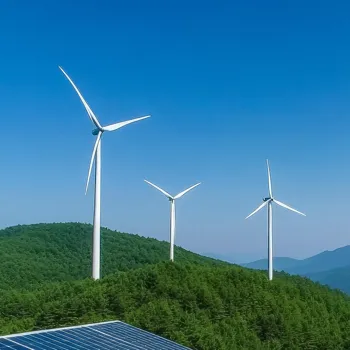Unveiling India's Innovation Strategies Against Climate Change - Dive into 7 Transformative Approaches!
Climate change, a global challenge of immense proportions, demands immediate and innovative solutions.
For India, a nation bearing the brunt of erratic weather patterns, rising sea levels, and depleting resources, tackling climate change is not merely an environmental concern, but a matter of survival and sustainable progress.
Fortunately, innovation offers a powerful arsenal to combat this crisis, providing pathways towards a greener, more resilient future.
This article explores seven key strategies where innovation can play a pivotal role in India's fight against climate change, ensuring a better tomorrow for generations to come.
India's advancements in renewable energy and need for further innovation
One crucial area is the development and deployment of renewable energy technologies. India has already made significant strides in solar and wind power, but further innovation is needed to improve efficiency, storage, and grid integration.

This includes exploring advanced battery technologies, developing smart grids that can handle fluctuating energy supplies, and investing in research for novel renewable energy sources like green hydrogen and tidal power.
The focus should be on creating affordable and reliable renewable energy solutions that can be adopted at scale, particularly in rural areas where access to electricity remains a challenge.
These advancements aren't just about cleaner energy, but also about job creation and economic empowerment in the renewable energy sector.
Indian agriculture faces climate risks, needs innovation for resilience
Agriculture, a cornerstone of the Indian economy, is highly vulnerable to climate change. Erratic monsoons, droughts, and floods severely impact crop yields and farmer livelihoods. Innovation in agricultural practices is crucial for building climate resilience.

This includes developing drought-resistant and flood-tolerant crop varieties through genetic engineering and traditional breeding techniques.
Promoting precision agriculture, using technologies like drones, sensors, and data analytics to optimize water and fertilizer use, can significantly reduce resource wastage and improve productivity.
Additionally, fostering sustainable farming practices like organic farming and agroforestry can enhance soil health and carbon sequestration, making agriculture a part of the climate solution.
India's sustainable transportation shift: EVs, public transit, cycling, tech integration
Another vital strategy involves transforming the transportation sector, a major contributor to greenhouse gas emissions.
India needs to aggressively promote electric vehicles (EVs) by investing in charging infrastructure, offering incentives to consumers, and encouraging local manufacturing of EV components.
Simultaneously, innovation in public transportation is essential, with the development of efficient and affordable bus rapid transit systems, metro networks, and high-speed rail lines.
Promoting cycling and walking through improved infrastructure and awareness campaigns can further reduce reliance on private vehicles and promote healthier lifestyles.
The integration of technology, like apps for ride-sharing and public transport information, can make sustainable transportation options more convenient and appealing.
Sustainable water management crucial for water security through innovation and awareness
Sustainable water management is paramount in a country facing increasing water scarcity. Innovation in water conservation, rainwater harvesting, and wastewater treatment is crucial for ensuring water security.
Developing efficient irrigation techniques like drip irrigation and sprinkler systems can minimize water wastage in agriculture. Implementing smart water management systems that use sensors and data analytics to monitor water levels and prevent leaks can improve water distribution efficiency.
Investing in desalination technologies and advanced wastewater treatment plants can provide alternative water sources and reduce the strain on freshwater resources.
Public awareness campaigns promoting water conservation at the household level are also essential for fostering a culture of responsible water use.
India's cities must innovate urban planning for climate resilience
India's cities, rapidly growing urban centers, are particularly vulnerable to the impacts of climate change. Innovation in urban planning and infrastructure is crucial for building climate-resilient cities.

This includes developing green buildings that minimize energy consumption and water usage, implementing green infrastructure like urban forests and rain gardens to mitigate heat islands and manage stormwater, and promoting sustainable waste management practices like waste-to-energy plants and composting.
Investing in climate-resilient infrastructure, such as elevated roads and flood-resistant drainage systems, can protect communities from extreme weather events.
Smart city initiatives, leveraging technology to improve resource efficiency and quality of life, can play a significant role in building sustainable and resilient urban environments.
Fostering sustainability through education and awareness for climate change
Finally, fostering a culture of sustainability through education and awareness is crucial for driving long-term change. Innovation in education is needed to integrate climate change into the curriculum at all levels, empowering students with the knowledge and skills to address this challenge.
Public awareness campaigns using innovative communication strategies, such as social media, documentaries, and community events, can promote sustainable lifestyles and encourage pro-environmental behavior.
Supporting research and development in climate change solutions through government funding and private investment is essential for fostering innovation and technological breakthroughs.
By empowering individuals and communities with the knowledge and resources to address climate change, India can build a more sustainable and resilient future for all.
AI Generated Content. Glance/InMobi shall have no liability for the content













